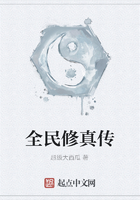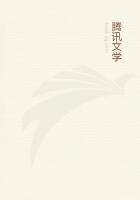The ultimate sanction, therefore, of all morality (external motives apart) being a subjective feeling in our own minds, I see nothing embarrassing to those whose standard is utility, in the question, what is the sanction of that particular standard? We may answer, the same as of all other moral standards- the conscientious feelings of mankind. Undoubtedly this sanction has no binding efficacy on those who do not possess the feelings it appeals to; but neither will these persons be more obedient to any other moral principle than to the utilitarian one. On them morality of any kind has no hold but through the external sanctions. Meanwhile the feelings exist, a fact in human nature, the reality of which, and the great power with which they are capable of acting on those in whom they have been duly cultivated, are proved by experience. No reason has ever been shown why they may not be cultivated to as great intensity in connection with the utilitarian, as with any other rule of morals.
There is, I am aware, a disposition to believe that a person who sees in moral obligation a transcendental fact, an objective reality belonging to the province of "Things in themselves," is likely to be more obedient to it than one who believes it to be entirely subjective, having its seat in human consciousness only. But whatever a person's opinion may be on this point of Ontology, the force he is really urged by is his own subjective feeling, and is exactly measured by its strength. No one's belief that duty is an objective reality is stronger than the belief that God is so; yet the belief in God, apart from the expectation of actual reward and punishment, only operates on conduct through, and in proportion to, the subjective religious feeling. The sanction, so far as it is disinterested, is always in the mind itself; and the notion therefore of the transcendental moralists must be, that this sanction will not exist in the mind unless it is believed to have its root out of the mind; and that if a person is able to say to himself, This which is restraining me, and which is called my conscience, is only a feeling in my own mind, he may possibly draw the conclusion that when the feeling ceases the obligation ceases, and that if he find the feeling inconvenient, he may disregard it, and endeavour to get rid of it. But is this danger confined to the utilitarian morality? Does the belief that moral obligation has its seat outside the mind make the feeling of it too strong to be got rid of? The fact is so far otherwise, that all moralists admit and lament the ease with which, in the generality of minds, conscience can be silenced or stifled. The question, Need I obey my conscience? is quite as often put to themselves by persons who never heard of the principle of utility, as by its adherents. Those whose conscientious feelings are so weak as to allow of their asking this question, if they answer it affirmatively, will not do so because they believe in the transcendental theory, but because of the external sanctions.
It is not necessary, for the present purpose, to decide whether the feeling of duty is innate or implanted. Assuming it to be innate, it is an open question to what objects it naturally attaches itself; for the philosophic supporters of that theory are now agreed that the intuitive perception is of principles of morality and not of the details. If there be anything innate in the matter, I see no reason why the feeling which is innate should not be that of regard to the pleasures and pains of others. If there is any principle of morals which is intuitively obligatory, I should say it must be that. If so, the intuitive ethics would coincide with the utilitarian, and there would be no further quarrel between them. Even as it is, the intuitive moralists, though they believe that there are other intuitive moral obligations, do already believe this to one; for they unanimously hold that a large portion of morality turns upon the consideration due to the interests of our fellow-creatures.
Therefore, if the belief in the transcendental origin of moral obligation gives any additional efficacy to the internal sanction, it appears to me that the utilitarian principle has already the benefit of it.
On the other hand, if, as is my own belief, the moral feelings are not innate, but acquired, they are not for that reason the less natural. It is natural to man to speak, to reason, to build cities, to cultivate the ground, though these are acquired faculties. The moral feelings are not indeed a part of our nature, in the sense of being in any perceptible degree present in all of us; but this, unhappily, is a fact admitted by those who believe the most strenuously in their transcendental origin. Like the other acquired capacities above referred to, the moral faculty, if not a part of our nature, is a natural outgrowth from it; capable, like them, in a certain small degree, of springing up spontaneously; and susceptible of being brought by cultivation to a high degree of development. Unhappily it is also susceptible, by a sufficient use of the external sanctions and of the force of early impressions, of being cultivated in almost any direction: so that there is hardly anything so absurd or so mischievous that it may not, by means of these influences, be made to act on the human mind with all the authority of conscience. To doubt that the same potency might be given by the same means to the principle of utility, even if it had no foundation in human nature, would be flying in the face of all experience.














